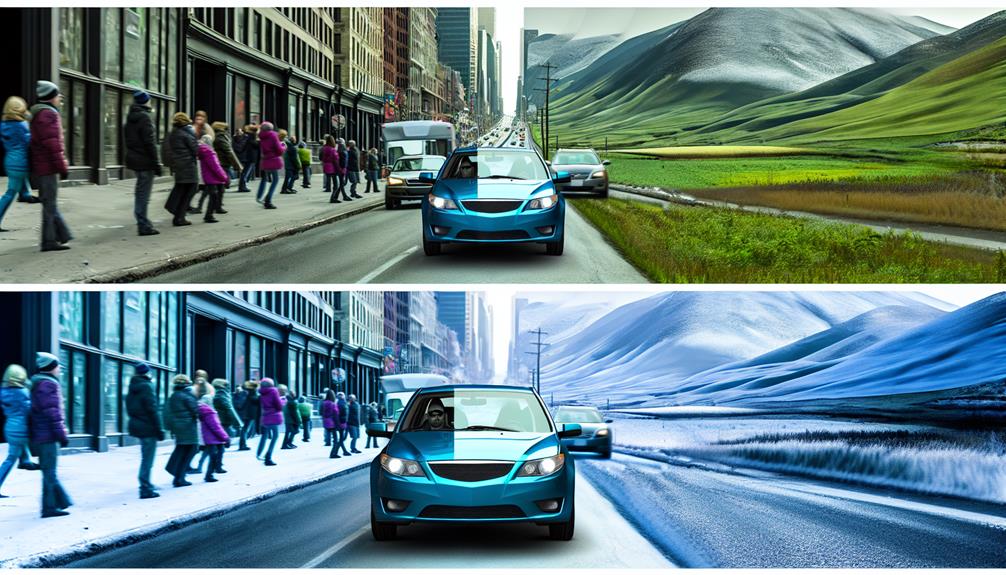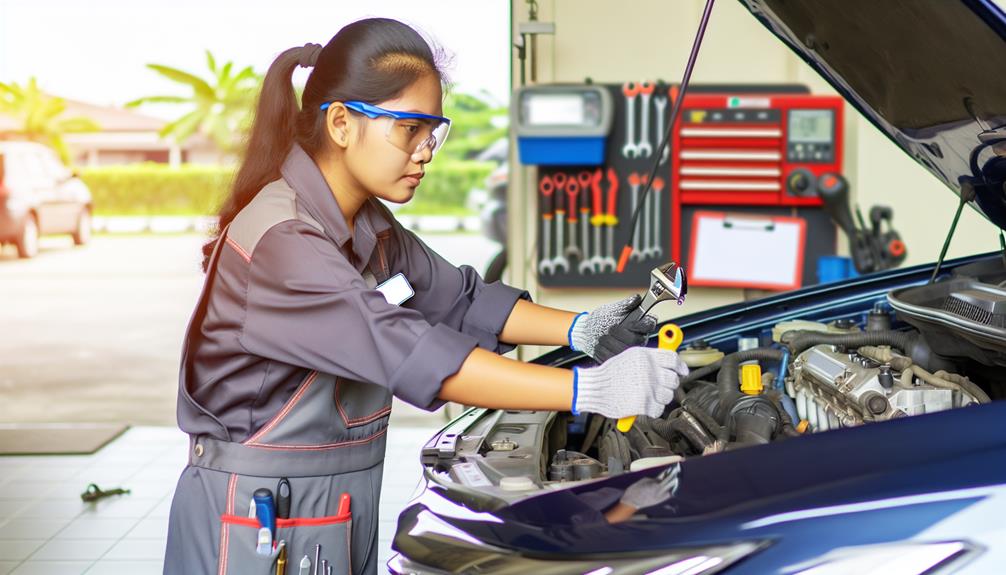When it comes to your driving test car hire, the choice between a standard package and a premium one can greatly impact your experience.
But have you ever considered the finer details that could make all the difference in your performance?
Stay tuned to discover how you can optimize your investment and guarantee a successful driving test outcome.
Key Takeaways
- Choose the right car hire package for value and coverage.
- Familiarize yourself with the vehicle’s controls and features.
- Practice driving in various conditions to improve skills.
- Ensure proper vehicle maintenance for a reliable test experience.
Choosing the Right Car Hire Package

When selecting a car hire package for your driving test, consider the duration, included mileage, and additional fees to guarantee maximum value.
To begin with, explore budget options that align with your financial plan. Opt for packages that offer competitive rates without compromising on essential features. Compare different rental companies to find the best deal that suits your budget while meeting your requirements.
To start with, dive into the world of insurance coverage. Make sure that the car hire package includes all-encompassing insurance to protect you in case of any unforeseen incidents during your driving test. Check whether the insurance covers damages, theft, and third-party liabilities. Understanding the extent of insurance coverage will provide you with peace of mind and financial security throughout the rental period.
Familiarizing Yourself With the Vehicle
To optimize your driving test experience, thoroughly acquaint yourself with the vehicle’s features and controls before hitting the road. Familiarizing yourself with the vehicle is important for a successful driving test. Here are some key steps to help you get acquainted with the car:
- Vehicle Controls:
- Study the location and function of essential controls like the steering wheel, pedals, gear shift, turn signals, lights, wipers, and horn.
- Practice adjusting the mirrors, seat position, and steering column to make sure comfort and proper visibility.
- Learn how to use features such as the parking brake, hazard lights, and cruise control if available.
- Emergency Procedures:
- Locate the emergency brake and understand how to engage it in case of an emergency stop.
- Familiarize yourself with the procedure for activating the hazard lights in case of a breakdown or accident.
- Know the location of the spare tire, jack, and tools for changing a flat tire.
Practicing in Various Driving Conditions

Practicing in a variety of driving conditions enhances your adaptability and sharpens your skills behind the wheel. Night driving presents unique challenges due to reduced visibility. By practicing at night, you can improve your ability to use headlights effectively, judge distances accurately, and stay focused amidst potential distractions.
Additionally, rainy weather requires adjusting your driving techniques to maintain control on slippery roads. By practicing in rainy conditions, you can learn how to brake gently, avoid hydroplaning, and steer smoothly to navigate safely.
When practicing in diverse conditions, aim for a balance between familiar and challenging scenarios. Start with well-lit streets at night before progressing to darker areas. Similarly, begin practicing in light rain before tackling heavier downpours. Keep track of the time spent practicing in each condition to ensure a thorough learning experience.
Maximizing Practice Time Effectively
Efficiently allocating your practice time can greatly impact your driving skills development. To make the most of your practice sessions, consider the following:
- Time management: Set specific time blocks for practice, focusing on different skills each session. This structured approach guarantees you cover all necessary areas without feeling overwhelmed.
- Practice techniques: Utilize proven techniques such as visualization before a practice session, breaking down maneuvers into smaller steps, and seeking feedback from experienced drivers. These techniques can enhance your learning and retention.
- Confidence building, skill development: Work on building your confidence through gradual progression. Start with simple tasks and gradually challenge yourself with more complex maneuvers. This incremental approach boosts confidence and allows for steady skill development.
Ensuring Proper Vehicle Maintenance

Maintaining proper vehicle maintenance is vital for optimizing your driving test car hire experience and minimizing the risk of unexpected issues during your test. To achieve this, schedule routine check-ups to keep your rental vehicle in top condition. Regular inspections can catch potential problems early, preventing inconvenient breakdowns during your test.
Additionally, consistent servicing is essential. Make sure your driving test car undergoes maintenance according to the manufacturer’s recommendations. This includes oil changes, tire rotations, brake checks, and fluid top-ups. By adhering to a strict servicing schedule, you reduce the likelihood of mechanical failures that could disrupt your test day.

